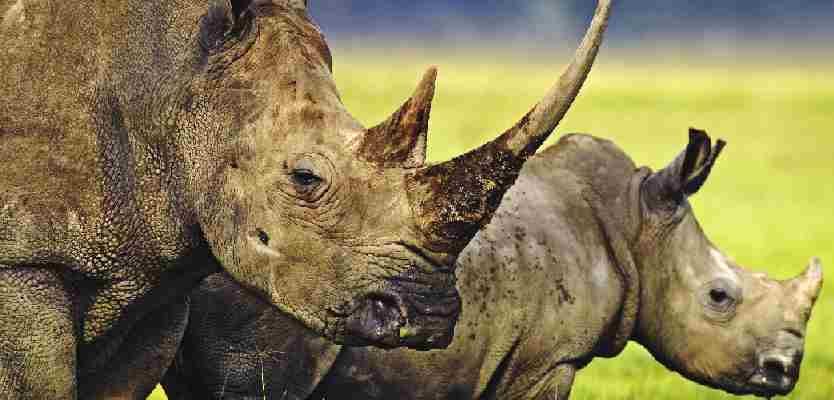
Five rhino in the North West have been fitted with a GPS device that will help protect them from poachers, the provincial Parks Board said on Thursday.
“The GPS device is fitted into the rhino’s horn by drilling a hole in the inert part of the horn,” head of counter-poaching in the North West, Rusty Hustler said.
“The animals’ movements are then tracked 24/7 and if they are attacked, game rangers will be alerted via the alarms.”
This was the first time a device like this was being used.
The device was battery-operated and connected to a cellphone and a computer. It had a life span of two-and-a-half years, he said.
Reaction team
The GPS could be programmed to emit a signal every 60 seconds and could be adjusted from the operating room. It was programmed to set off the alarm if the rhino was motionless for more than six hours, or if there was excessive movement.
A “reaction team” would go out if the alarm went off, Hustler said.
The GPS was also a good ecological monitoring device, he said.
“In the future we could offer students an opportunity to come to the parks and do studies on rhinos.”
The device was still in the test phase, but the North West Parks Board was happy with its results so far.
“If we prove it completely then my consideration will be that all the North West parks that have rhino should have the GPS device.”
More than 200 rhinos had been slaughtered countrywide since the start of the year. In the North West alone more than 40, including a pregnant cow, had been killed.
Hustler explained well-organised syndicates comprised five levels. Level one were the poachers, level two the controller who organised these gangs, and level three the purchaser. Then came the individuals who co-ordinated the shipping of horns abroad and lastly international buyers.
– SAPA

